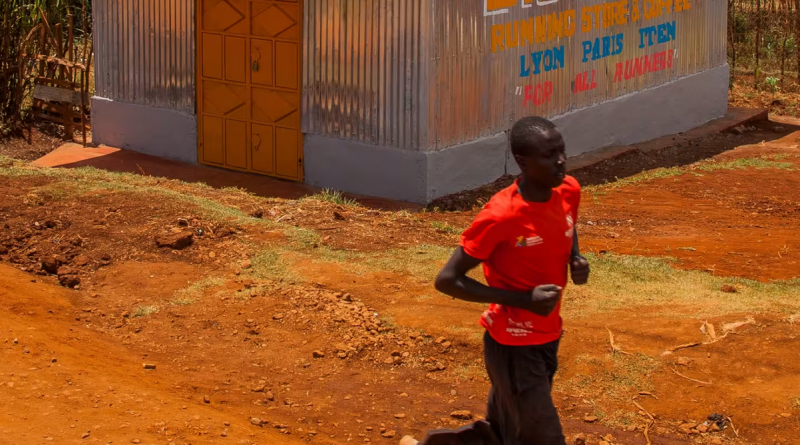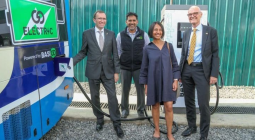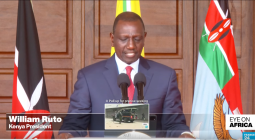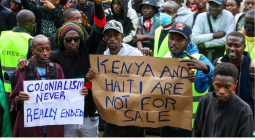The store kitting out Kenyan champions-in-the-making

On the side of a red-clay road in Iten, a large town in the west of Kenya, resides a small corrugated-metal hut. It has no windows, nor typical signage above its yellow front door; instead, handpainted lettering on the side of the structure invites passers-by in with the words “For All Runners”. The “Running Store & Coffee” shop, established in 2022, is operated by the Lyon-founded company Distance Athletics, an independent running shop with stores in Lyon, Paris and Copenhagen. The Distance Iten outpost, however, is distinct. Inside, second-hand shoes from brands such as On and Asics are available to local Kenyan runners, priced €2-€10 in local currency.
“It’s a community project, not a profit-driven enterprise,” says Guillaume Pontier, a former optician and co-founder of Distance, who came up with the idea of a give-back store after many trips to the Kenyan town with his father, Jef, who has coached the French national marathon team. With its high altitude (almost 8,000ft above sea level) and relatively cool morning temperatures, Iten has been called the “perfect training environment” for long-distance runners and is now regularly referred to as the “Home of the Champions”. Today, thousands of international and local runners live and train here, with many moving from across Africa to try to get scouted for national teams or sponsored by the big sports brands. It has produced a series of world-class and Olympic athletes, including Eliud Kipchoge, who still trains there. Jef has spent much of his career in Iten, hosting and coaching high-level French runners.
In most cases, unless an athlete is sponsored, they have little access to kit or shoes. “We saw many athletes on our trips running barefoot because they didn’t have trainers,” says Pontier. A Nike Vaporfly 3, a fast shoe for track training, is €260; typical monthly earnings in Kenya range from €220 to €940. “It’s inaccessible,” he says. The global running apparel industry is worth $41bn. That elites in Iten don’t necessarily have access to affordable training shoes highlights a vast investment issue from the big sports brands and the broader industry at large. “In Kenya they run 200km a week,” says Pontier. “They need shoes to do that.” The Iten store was built “Kenyan style” within a couple of weeks, says Pontier, who rents the land from a friend. It’s a simple structure with a concrete floor and a wooden frame, and shelves housing rows and rows of trainers. Originally, it was stocked solely with donated wares crowd-sourced from the Parisian Distance community: some gave colourful Hoka trainers; another runner a pair of slick black Nike sunglasses, which were bought for less than €1 by a female runner in Iten. (The roads here are dusty, and temperatures can reach 35 or 40ºC in summer.) Prices are decided by Ledisha, a local athlete, who runs the store with her brother. As Pontier says, it’s not up to him – living in France – to decide what’s affordable for local people.
Demand for kit has proven so high that, upon opening, the store struggled to maintain stock levels. News of a product drop would spread, and the shelves would be empty within the day. Since then, Pontier has tapped into his wholesale connections, enlisting brands sold in Distance’s European stores to help. On and other companies now give shoes worn for product testing or events, including speed shoes similar to the CloudTri 1 that Hellen Obiri wore to win the New York marathon.
Efforts are set to ramp up this summer as the store turns into a two-week Olympics screening space. It will become a community hub by way of a projector screen, plenty of seating, and regular barbecues of seasoned chicken, corn on the cob and chips. This way, locals can gather to watch their track mates sprint towards world records. And, no doubt, dream of their own Olympic medal
![]()




